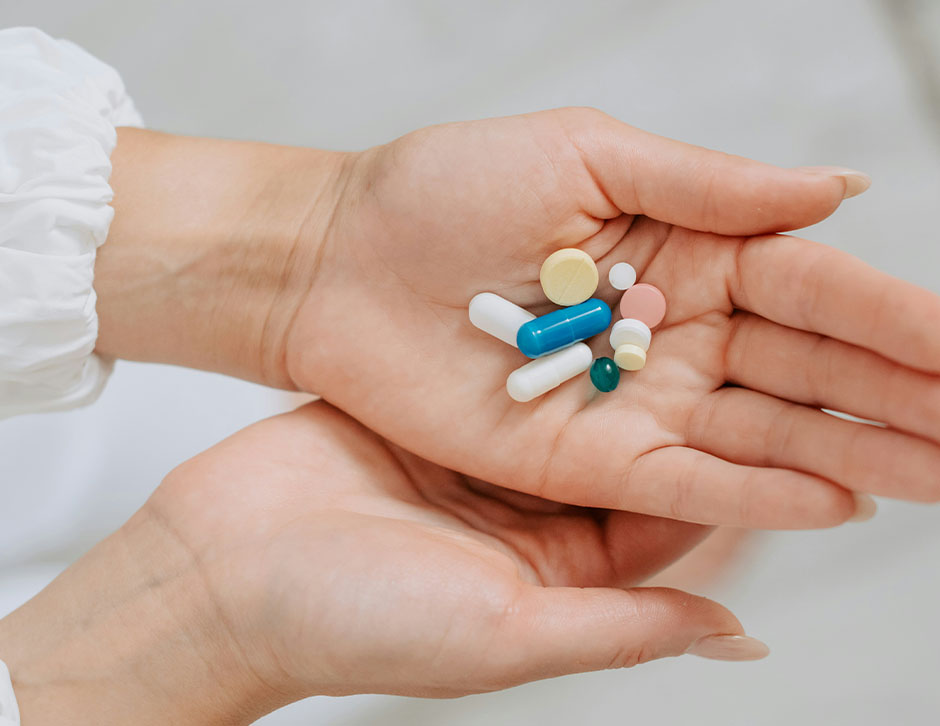
Here’s what we’ll cover in this blog post:
- Understanding how nootropics work
- Benefits of Methylene Blue
- Methylene Blue vs. traditional nootropics
- Adding Methylene Blue to your nootropic regime
Cognitive enhancement is a growing field, with biohackers, professionals, and researchers seeking ways to improve focus, memory, and mental performance. Within this field, nootropics (brain-enhancing compounds) have emerged as a go-to solution. But one lesser-known nootropic is leading the way—Methylene Blue.
Unlike traditional nootropics that manipulate neurotransmitters for temporary boosts in memory and focus, Methylene Blue works at the cellular energy level, offering both cognitive benefits and long-term brain protection.
So, how does Methylene Blue compare to traditional nootropics? Is it more effective, or safer for long-term use? Here, we’ll explore how Methylene Blue compares to the nootropics you might already be using, and why it deserves serious consideration.
How Do Nootropics Work?
Most popular nootropics work through predictable mechanisms. Modafinil boosts dopamine and promotes wakefulness. Racetams enhance acetylcholine signaling. Caffeine blocks adenosine receptors. Each one offers benefits, but they often come with downsides like crashes, tolerance buildup, or reduced effectiveness over time.
These approaches primarily manipulate neurotransmitter systems rather than addressing the fundamental cellular energy needs of your brain. It’s like trying to make your car go faster by pressing harder on the gas pedal instead of upgrading the engine itself.
Meanwhile, none of these options really address the hallmarks of aging.
Methylene Blue: The Mitochondrial Advantage
Unlike many nootropics, Methylene Blue offers both short-term cognitive enhancement and long-term neuroprotection.
At low doses, Methylene Blue helps your brain cells produce more ATP energy while reducing harmful chemical byproducts like free radicals. This makes Methylene Blue attractive for those hoping to improve cognitive function:
- Sustains mental energy without stimulant effects
- Reduces oxidative stress in neurons
- Enhances memory formation and recall
- Improves focus and mental clarity
Unlike the borrowed energy of stimulants, Methylene Blue works by helping your brain cells work more efficiently at their fundamental level. This may help support a clean, focused boost in cognition without the jitters or crashes.
Plus, better mitochondrial health helps support long-term neuroprotective benefits. By boosting mitochondrial function, Methylene Blue not only enhances cellular energy, but also helps process sugar, clear cellular waste, and reduce inflammation—all of which are hallmarks of brain aging, some of which can lead to neurodegeneration.
Methylene Blue vs. Traditional Nootropics
When directly comparing Methylene Blue to other cognitive enhancers, several key differences emerge:
Methylene Blue vs. Modafinil
Modafinil supports wakefulness and focus through dopamine modulation, offering 12+ hours of alertness. However, it can disrupt sleep architecture, cause headaches, and potentially affect dopamine sensitivity with regular use.
Methylene Blue fosters enhanced cognition without significantly disrupting sleep (when taken in the morning). It works through energy optimization rather than neurotransmitter manipulation, potentially making it more sustainable for regular use.
Methylene Blue vs. Racetams
Racetams enhance acetylcholine signaling, supporting memory formation and verbal fluency. They typically take 1-2 hours to work and last several hours.
Methylene Blue activates within 30-60 minutes and provides both immediate cognitive benefits and cumulative neuroprotection. While racetams primarily benefit memory systems, Methylene Blue enhances overall brain energy, cognitive function, and resilience to cellular stress and damage.
Methylene Blue vs. Caffeine
Caffeine blocks adenosine receptors, which will help you feel more awake during the day. This works quickly, but often leads to tolerance, dependency, and afternoon crashes.
Methylene Blue enhances mitochondrial function directly, providing sustained energy without depleting your body’s resources. Therefore, low-dose Methylene Blue may create greater cognitive enhancement with fewer side effects than caffeine alone.
How to Use Methylene Blue Effectively
To gain Methylene Blue’s benefits while minimizing risks, follow these guidelines:
Dosing Strategy
- Start low: 5mg per dose, 2-3 times weekly
- Gradually increase up to 10-20mg per dose
- Take in the morning or early afternoon to avoid sleep disruption
The hormetic dose response of Methylene Blue means more isn’t better. Low doses, like those mentioned above, provide cognitive benefits, while higher doses can actually impair mitochondrial function.
How to Use Methylene Blue Effectively
To gain Methylene Blue’s benefits while minimizing risks, follow these guidelines:
Dosing Strategy
- Start low: 5mg per dose, 2-3 times weekly
- Gradually increase up to 10-20mg per dose
- Take in the morning or early afternoon to avoid sleep disruption
The hormetic dose response of Methylene Blue means more isn’t better. Low doses, like those mentioned above, provide cognitive benefits, while higher doses can actually impair mitochondrial function.
The Future of Cognitive Enhancement
The most effective cognitive enhancement strategies begin with brain energy, such as addressing mitochondrial function before manipulating neurotransmitters. This “mitochondria-first” approach offers sustainable benefits without the crashes or tolerance seen with stimulant-based methods.
Methylene Blue marks a shift in nootropic thinking: from forcing activity through existing systems to enhancing the brain’s intrinsic capacity for energy and resilience. For those seeking long-term brain health, it deserves serious consideration. The future of nootropics isn’t about pushing harder; it’s about upgrading the system itself. Methylene Blue offers exactly that.
Note: The above statements have not been evaluated by the Food and Drug Administration. This product is not intended to diagnose, treat, cure, or prevent any disease.
